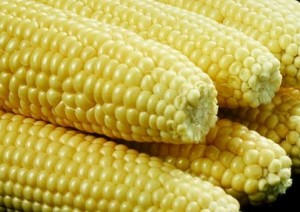Drought-tolerant maize making waves in Sub-Saharan Africa
 Partners and funders of the Drought Tolerant Maize for Africa (DTMA) Project would on Monday convene in Addis Ababa, Ethiopia, to take stock of the score-card, as a marathon maize project winds up after eight years.
Partners and funders of the Drought Tolerant Maize for Africa (DTMA) Project would on Monday convene in Addis Ababa, Ethiopia, to take stock of the score-card, as a marathon maize project winds up after eight years.
DTMA concludes its work in Africa on improved drought-tolerant maize, to help maize farmers in sub-Saharan Africa mitigate drought as well as contribute to a stronger food system in 13 countries in sub-Saharan Africa, through more than 200 improved maize varieties aimed at helping farmers cope with climate change and low-fertility soils through collaboration.
A release copied to Ghana News Agency said DTMA has benefited from, and drawn on, rich partnerships with private and public institutions with concerted efforts by national research organisations, seed companies, including International Maize and Wheat Improvement Centre (CIMMYT) and its sister international research centres, particularly, International Institute of Tropical Agriculture and the Consultative Group for International Research (CGIAR).
Dr B.M. Prasanna, Director of CIMMYT’s Global Maize Programme doubling as CGIAR Research Programme Officer on MAIZE said: “Africa’s food security faces a host of challenges, but undoubtedly, drought is the most devastating challenge because our farmers rely on rains to grow their food.
The work undertaken by DTMA has created significant impacts. However, several challenges remain.
“Our work continues in sub-Saharan Africa to ensure farmers can access improved maize seed with drought tolerance and other relevant traits that contribute to increased and stable yields,” he added.
The four-day event would be officially opened by, among others, Dr Fentahun Mengistu, the Director General of the Ethiopian Institute of Agricultural Research.
The meeting would reflect on the project’s achievements in some of Africa’s breadbasket countries.
DTMA has released more than 200 drought-tolerant maize varieties that perform significantly better under moderate drought compared to varieties already on the market, while yielding at par with – or better – than these existing varieties when there is no drought.
Project varieties include hybrids that yield, on average, 15 per cent more than widely grown commercial hybrids, giving farmers much higher yield regardless of climatic constraints – in good or in bad years.
According to the release, more than two million farmers have acquired and grown the new drought-tolerant varieties in DTMA target countries, including Ethiopia.
The 13 DTMA target countries are Ghana, Angola, Benin, Ethiopia, Kenya, Malawi, Mali, Mozambique, Nigeria, Tanzania, Uganda, Zambia and Zimbabwe.
Of the 11 varieties released in Ethiopia by DTMA, six are high-yielding hybrids that would contribute to improving food security for the more than nine million smallholder households’ currently growing maize for food and income.
The meeting will also review the progress made under the Improved Maize for African Soils (IMAS) project, as IMAS turns a new corner beginning in 2016. Modeled along similar lines as DTMA – albeit on a smaller scale – IMAS and DTMA have worked together to amplify benefits for farmers by stacking both drought tolerance and nitrogen-use efficiency into a single variety where possible.
There will be special emphasis on drought-tolerant and nitrogen-efficient varieties, which are helping farmers, cope not only with drought, but also with the challenge of poor soil fertility.
Meeting the current demand for – and improving access to – these improved high-yielding seeds will be CIMMYT’s primary focus for the next five years.
To achieve this, CIMMYT is working with seed companies through a new project, Drought Tolerant Maize for Africa Seed Scaling (DTMASS), to produce close to 12,000 metric tons of certified seed for approximately 400,000 households – or 2.5 million people across seven countries (Ethiopia, Kenya, Malawi, Mozambique, Tanzania, Uganda and Zambia).
“The success of DTMA goes beyond the breeding work. Our work now is to ensure that maize farmers benefit from the seed that was developed with them in mind. Getting the drought-tolerant maize and other improved seeds to the farmers is a critical step that will ultimately crown the success of our work for the last eight years,” said Dr. Tsedeke Abate, DTMA and DTMASS Project Leader.
It said maize production in Africa is growing rapidly, making maize the most widely cultivated crop in the continent, and a staple food for more than 300 million people. Giving farmers improved seed choices that will increase their maize yields is a guaranteed pathway to strengthening Africa’s food security.
The maize story for Africa’s breadbasket countries is changing for the better, and DTMA and IMAS have been an integral part of this transformative narrative.
Source: GNA
